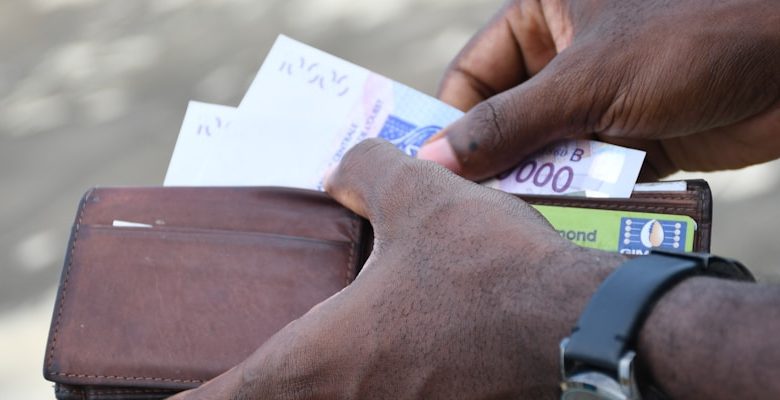How DeFi Is Revolutionizing Cross-Border Payments

- Understanding the impact of DeFi on traditional cross-border payment systems
- Exploring the benefits of decentralized finance in making global transactions faster and cheaper
- The rise of DeFi platforms as alternatives to traditional banking for international payments
- Challenges and opportunities in using DeFi for cross-border transactions
- Case studies of successful cross-border payments using decentralized finance
- Regulatory considerations in the adoption of DeFi for global remittances
Understanding the impact of DeFi on traditional cross-border payment systems
DeFi has been disrupting traditional cross-border payment systems by offering a more efficient and cost-effective alternative. This decentralized finance technology leverages blockchain to enable peer-to-peer transactions without the need for intermediaries such as banks or payment processors. As a result, DeFi has the potential to revolutionize the way we send and receive money across borders.
One of the key advantages of DeFi in cross-border payments is the elimination of high fees typically charged by traditional financial institutions. By cutting out the middlemen, DeFi allows users to transfer funds at a fraction of the cost, making it an attractive option for individuals and businesses looking to save money on international transactions. Additionally, DeFi transactions are processed much faster than traditional methods, often settling within minutes rather than days.
Furthermore, DeFi offers greater accessibility and inclusivity in cross-border payments. With traditional systems, individuals in underserved regions may struggle to access banking services or incur exorbitant fees. DeFi opens up new opportunities for these populations to participate in the global economy, leveling the playing field for all users regardless of their location or financial status.
Overall, the impact of DeFi on traditional cross-border payment systems is undeniable. As more people recognize the benefits of decentralized finance, we can expect to see a continued shift towards this innovative technology in the realm of international money transfers. The future of cross-border payments is being reshaped by DeFi, offering a more efficient, affordable, and inclusive solution for individuals and businesses around the world.
Exploring the benefits of decentralized finance in making global transactions faster and cheaper
Decentralized finance (DeFi) is changing the way global transactions are conducted by offering a faster and more cost-effective solution compared to traditional banking systems. By leveraging blockchain technology, DeFi platforms enable users to send and receive payments across borders in a matter of seconds, without the need for intermediaries such as banks or payment processors.
One of the key benefits of DeFi in cross-border payments is its ability to eliminate costly fees associated with traditional banking systems. With DeFi, users can send funds directly to recipients anywhere in the world without having to pay exorbitant fees charged by banks for international transactions. This not only saves money for both the sender and the recipient but also ensures that the transaction is completed quickly and efficiently.
Moreover, DeFi offers increased transparency and security in global transactions by utilizing smart contracts on the blockchain. These self-executing contracts automatically enforce the terms of the transaction, eliminating the need for trust between parties. This not only reduces the risk of fraud but also ensures that funds are securely transferred to the intended recipient without the risk of interception or tampering.
Overall, decentralized finance is revolutionizing cross-border payments by providing a faster, cheaper, and more secure alternative to traditional banking systems. As more individuals and businesses adopt DeFi solutions for their global transactions, the potential for a more efficient and inclusive financial system becomes increasingly promising. With DeFi, the world is moving towards a future where borders are no longer barriers to seamless and cost-effective financial transactions.
The rise of DeFi platforms as alternatives to traditional banking for international payments
Decentralized Finance (DeFi) platforms have been gaining popularity as viable alternatives to traditional banking for international payments. These platforms leverage blockchain technology to enable users to send and receive funds across borders quickly and securely, without the need for intermediaries such as banks.
One of the key advantages of using DeFi platforms for cross-border payments is the low cost involved. Traditional banking systems often charge high fees for international transfers, which can eat into the amount being sent. In contrast, DeFi platforms typically have lower fees, making them a cost-effective option for individuals and businesses looking to make international payments.
Furthermore, DeFi platforms offer greater accessibility and inclusivity compared to traditional banking systems. Anyone with an internet connection can access these platforms, regardless of their location or background. This opens up a world of possibilities for individuals and businesses in underserved regions who may not have access to traditional banking services.
Another key benefit of using DeFi platforms for international payments is the speed of transactions. Traditional banking systems can take several days to process international transfers, leading to delays and inconvenience for the parties involved. In contrast, DeFi platforms enable near-instantaneous transactions, allowing users to send and receive funds in a matter of minutes.
Overall, the rise of DeFi platforms as alternatives to traditional banking for international payments represents a significant shift in the way we think about cross-border transactions. With their low cost, accessibility, and speed, these platforms are revolutionizing the world of international payments and providing users with a more convenient and efficient way to move money across borders.
Challenges and opportunities in using DeFi for cross-border transactions
When it comes to utilizing DeFi for cross-border transactions, there are both challenges and opportunities that need to be considered. One of the main challenges is the regulatory environment, which can vary greatly from country to country. This poses a hurdle for DeFi platforms looking to facilitate seamless cross-border payments. However, with proper compliance measures in place, these challenges can be overcome.
On the flip side, there are numerous opportunities in leveraging DeFi for cross-border transactions. For starters, DeFi offers lower transaction fees compared to traditional banking systems, making it a more cost-effective option for individuals and businesses alike. Additionally, DeFi provides faster transaction times, allowing for near-instantaneous cross-border payments without the delays typically associated with traditional methods.
Another key advantage of using DeFi for cross-border transactions is the transparency it offers. Blockchain technology ensures that transactions are recorded on a public ledger, providing greater visibility and accountability. This can help mitigate fraud and enhance trust between parties involved in cross-border transactions.
Case studies of successful cross-border payments using decentralized finance
Several case studies showcase the success of decentralized finance in revolutionizing cross-border payments. One such example is a company that utilized DeFi protocols to transfer funds between its international branches without the need for traditional banking systems. This process not only reduced transaction fees but also expedited the transfer process, leading to improved efficiency.
Another case study involves an individual who used decentralized finance platforms to send money to family members in a different country. By leveraging DeFi solutions, they were able to bypass the lengthy process typically associated with international wire transfers. This resulted in faster delivery of funds, ultimately benefiting both the sender and the recipients.
Furthermore, a business operating in multiple countries successfully integrated DeFi technology into its payment system. This allowed them to streamline their cross-border transactions and eliminate unnecessary intermediaries. As a result, the company experienced cost savings and enhanced security in their payment processes.
Regulatory considerations in the adoption of DeFi for global remittances
When considering the adoption of DeFi for global remittances, it is essential to take into account the regulatory landscape. Regulations surrounding decentralized finance can vary significantly from one country to another, making it crucial for businesses to navigate these complexities carefully.
One key aspect to consider is compliance with anti-money laundering (AML) and know your customer (KYC) regulations. Ensuring that DeFi platforms adhere to these requirements is essential for mitigating the risk of illicit activities such as money laundering and terrorist financing. By implementing robust AML/KYC procedures, businesses can maintain trust with regulators and customers alike.
Additionally, regulatory considerations extend to issues such as data privacy and consumer protection. DeFi platforms must prioritize the security and confidentiality of user data to comply with data protection regulations. Moreover, ensuring transparency and fair treatment of consumers is crucial for building credibility and avoiding potential legal issues.
Furthermore, cross-border remittances involve navigating foreign exchange regulations and compliance requirements in multiple jurisdictions. DeFi platforms must be prepared to address these challenges by partnering with licensed entities or obtaining necessary regulatory approvals to facilitate seamless and compliant transactions.
Overall, understanding and adhering to regulatory considerations is paramount for the successful adoption of DeFi for global remittances. By proactively addressing these issues, businesses can build a solid foundation for sustainable growth and innovation in the cross-border payments space.



